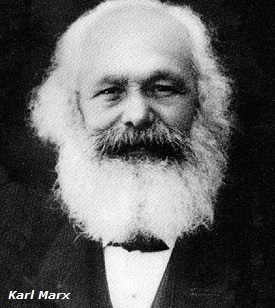
- Ancient Indian History - Home
- Study of Indian History
- Writing of Ancient Indian History
- Imperialist Historiography
- Historiography Nationalist Approach
- Marxist School of History
- Sources of Ancient Indian History
- Archaeological Sources
- Geographical Background
- Geography in Ancient Literature
- Stone Age Cultures
- Mesolithic Culture
- The Neolithic Age
- Chalcolithic Period of India
- Chalcolithic Culture In India
- Harappan Civilization
- Harappan Town Planning
- Harappan Crafts & Industries
- Harappan Culture
- Harappan Religion
- Harappan Chronology
- Vedic Civilization
- Vedic Society
- Vedic Politics
- Vedic Religion & Philosophy
- The Aryan Invasion
- Later Vedic Age
- Social System after Vedic Age
- Achievements of Indian Philosophy
- Evolution of Jainism
- Evolution of Buddhism
- Alexander’s Campaign in India
- Maurya Dynasty
- Kalinga War & its Impact
- Society & Economy during Mauryas
- Mauryan Governance
- Early History of South India
- Age of Smaller Dynasties
- Literature of Satavahana Period
- Society of Satavahana Period
- Economy of Satavahana Period
- Technology of Satavahana Period
- Chola Dynasty
- Pandya Dynasty
- Chera Dynasty
- Period of Foreign Invaders
- Gupta Period
- Decline of Guptas
- Governance of Gupta Period
- Literature of Gupta Period
- Economy in Gupta Period
- Science & Tech of Gupta Period
- India after the Gupta Period
- Period of Harsha
- South India during the Harsha Period
- Kadamba Dynasty
- History of Kamarupa
- India after Harsha
- Gurjara Pratiharas
- Palas of Bengal
- Rashtrakutas of Deccan
- Literature after the Harsha Period
- Society after the Harsha Period
- Economy after the Harsha Period
- Religion after the Harsha Period
- References & Disclaimer
Marxist School of History
The Marxist school of historiography was significant in the second half of the 20th century. They believe in universal laws and stages of history.
Stages of History

-
The Marxist, further, believe that all the societies pass through at least five stages of history. These stages were defined by Karl Marx and F. Engels as −
Primitive Communism
Slavery
Feudalism
Capitalism
Communism
The stages of history proposed by Marx and Engels were based on their understanding of European history. They clearly acknowledged their intellectual debt to F. W. Hegel and Lewis Henry Morgan.
G. W. F. Hegel (1770-1831) was a great western philosopher. He made no attempt to learn Sanskrit or any other Indian language. His writings on Indian history and philosophy were based mainly on the writings of William Jones, James Mill, and other British writers whose approach to ancient Indian history has already been discussed above; so, the results were really disastrous.
Hegel reluctantly accepted that India had a philosophical system and its history had great antiquity and he explicitly considered Indian system to be inferior to that of the Greeks and the Romans.
Marx knowledge about India was not really free from racial considerations. He took his lead from Hegel.
Marx was a great supporter of British rule in India and dismissed India as a backward and uncivilized nation with no history.
The Hegelian and Marxian approach to Indian history by and large remained dormant for a long time. It was largely non-existent during the British rule in India.
The Marxist school of historiography became one of the most influential and dominant schools after the independence of India.
Marx held that all that is good in Indian civilization is the contribution of conquerors. Therefore, according to this school, the Kushana period is the golden period of Indian history and not the Satavahanas or Guptas.
According to Marxist School of History, the period from the Gupta's to the conquest of Muslims in the 12th century A.D. has been termed as the "Period of Feudalism" i.e. "Dark Age" during which everything degenerated.
D. D. Kosambi was the first among the pioneers of the Marxist school of thought.
D. R. Chanana, R. S. Sharma, Romila Thapar, Irfan Habib, Bipan Chandra, and Satish Chandra are some of the leading Marxist historians of India.
In the Marxist scheme of history, the Soviet Union was the ideal state and Marxism is an ideal philosophy and polity.